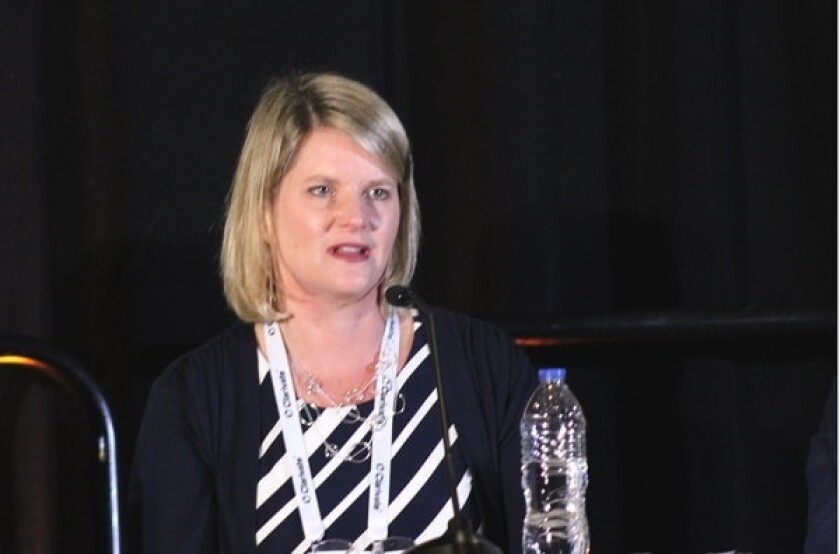Fraudulent trademarks and scams were plaguing US trademark owners and the USPTO, but the office had taken several steps to address the issue, speakers said at the INTA Annual Meeting in Washington DC today, May 3.
Three officials from the USPTO and a private practice lawyer set out how to stop suspicious activity in their panel called ‘Protecting Its Customers and Itself: How the USPTO is Responding to Fraud and Fighting Back’.
Amy Cotton, deputy commissioner for trademark examination policy at the USPTO, said fighting scams had been a huge part of her life since she took the job more than a year ago.
She noted that bad actors looked to take advantage of trademark owners in several ways. Some scammers had used the office’s publicly available data to solicit customers and get them to pay inflated fees.
Others had posed as the USPTO and spoofed the office’s email addresses and phone numbers to make their scams seem more credible.
Foreign bad actors had also hijacked or even rented attorney credentials to comply with the rule that foreign-domiciled applicants had to be represented by US-licenced attorneys, said Cotton.
Speakers noted that fraudulent actors sometimes reached out to US lawyers directly in attempts to use their credentials.
Will Covey, deputy general counsel and director of the office of enrolment and discipline at the USPTO, shared an email with the audience that someone had sent to a US attorney asking to rent the lawyer’s licence in exchange for a yearly fee.
Covey noted that he had received questions from lawyers asking whether they could agree to such arrangements. He clarified that the was answer “no”, of course.
“The sad thing is that in some of these cases, they were offering around $15 per application. These are small amounts of money that US attorneys are putting their bar licences at risk for,” he said.
Speakers said these types of scams often lead to fraudulent trademarks on the registry, which harmed brand owners in a few ways.
Belinda Scrimenti, partner at Pattishall McAuliffe Newbury Hilliard & Geraldson at Washington DC, said false filings forced the USPTO to put more resource into examining and scrutinising applications, which exacerbated wait times.
She added that fraudulent filings increased the odds that filers would have applications cited against them.
Fighting fraud
There were several steps the office had taken to cut down this bad activity, said speakers.
One was going through petitions for ex-parte expungement and re-examination proceedings that it had received. These proceedings, intended to make it easier to cancel marks that were no longer in use, came into effect as part of the Trademark Modernization Act, which was passed in December 2020.
Cotton said the office had a group of top-notch attorneys examining these petitions, including judges at the Trademark Trial and Appeal Board and employees from the Office of the Solicitor at the USPTO.
“Every single petition is a policy discussion,” noted Cotton.
The USPTO also used a bot to run all incoming addresses against the US postal service list to find improper ones. If it found an address that looked suspicious, it would flag it for the examiner, who could then issue a refusal, said Cotton.
She added that the USPTO had also sent over information about scams to law enforcement.
Michael Mangelson, principal counsel and director for China IP at the USPTO, also spoke on the panel. Jason Garcia, partner at Reed Smith in Silicon Valley, moderated the discussion.
The INTA Annual Meeting is being held this week at the Walter E Washington Convention Center in Washington DC.











